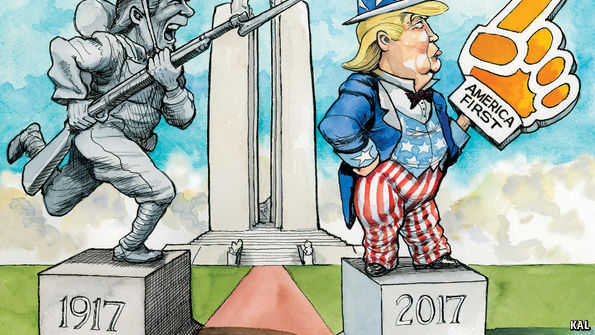
Móstoles, Second Largest City in Madrid Community, Declares Donald Trump Persona Non Grata
Visiting Móstoles, either in the long term or short term, isn't on the U.S. president’s agenda, but if it were, he wouldn't be welcome. The city council declared Donald Trump persona non grata last Thursday, June 28, in a symbolic gesture to demonstrate its opposition to his immigration policy.
Móstoles, a city which has the second largest population in the community of Madrid, is ruled by a left-leaning group of three parties ruling together who are responsible for advancing the motion. The 12 councilmen from the PP abstained from voting. The disposition of the motion declaring Trump persona non grata includes asking the Spanish government and the U.S. Embassy in Madrid to consider acting on it.
The motion, presented by councilman Eduardo Gutiérrez from the left-wing party IU, highlights the serious nature of the information coming from the U.S. regarding "the existence of detention camps where immigrant children are separated from their fathers and mothers due to not having the necessary documentation," adding mention of the aggravating circumstance that parents don't know where their children are, according to the document which the council signed.
"This situation represents a violation of basic humanitarian principles, and a serious infringement of international agreements, specially the United Nation's Declaration of the Rights of the Child," the document continues. And Móstoles, "a young city full of boys and girls who grow up free and without fear" can't ignore the situation, it adds. Therefore, the motion which was passed asks for the "utter rejection and condemnation" of these policies and for the U.S. president to be declared persona non grata.
PP spokesperson Alberto Rodríguez de Rivera, said Móstoles has shown its "complete rejection for Trump’s immigration policies and the separation of parents and children." Rivera added, though, that the measure is not appropriate for the city council of Móstoles because "it doesn’t have any effect," which is the reason why his party abstained from voting. He's invited remaining political groups to bring the motion before their parliamentary groups** in the congress and the senate, in order for it to be considered by the parliament, where it would have institutional impact.
*Translator’s note: The People’s Party or PP is the main right-leaning party in Spain.
**Translator’s note: Parliamentary groups are formed when a political party has several members (usually more than 10-15) in either the Senate of the Congress. Those politicians who voted in the council belong to political parties that may be represented in the Parliament if they had enough votes, and thus, they can ask those representatives to speak on their behalf.


